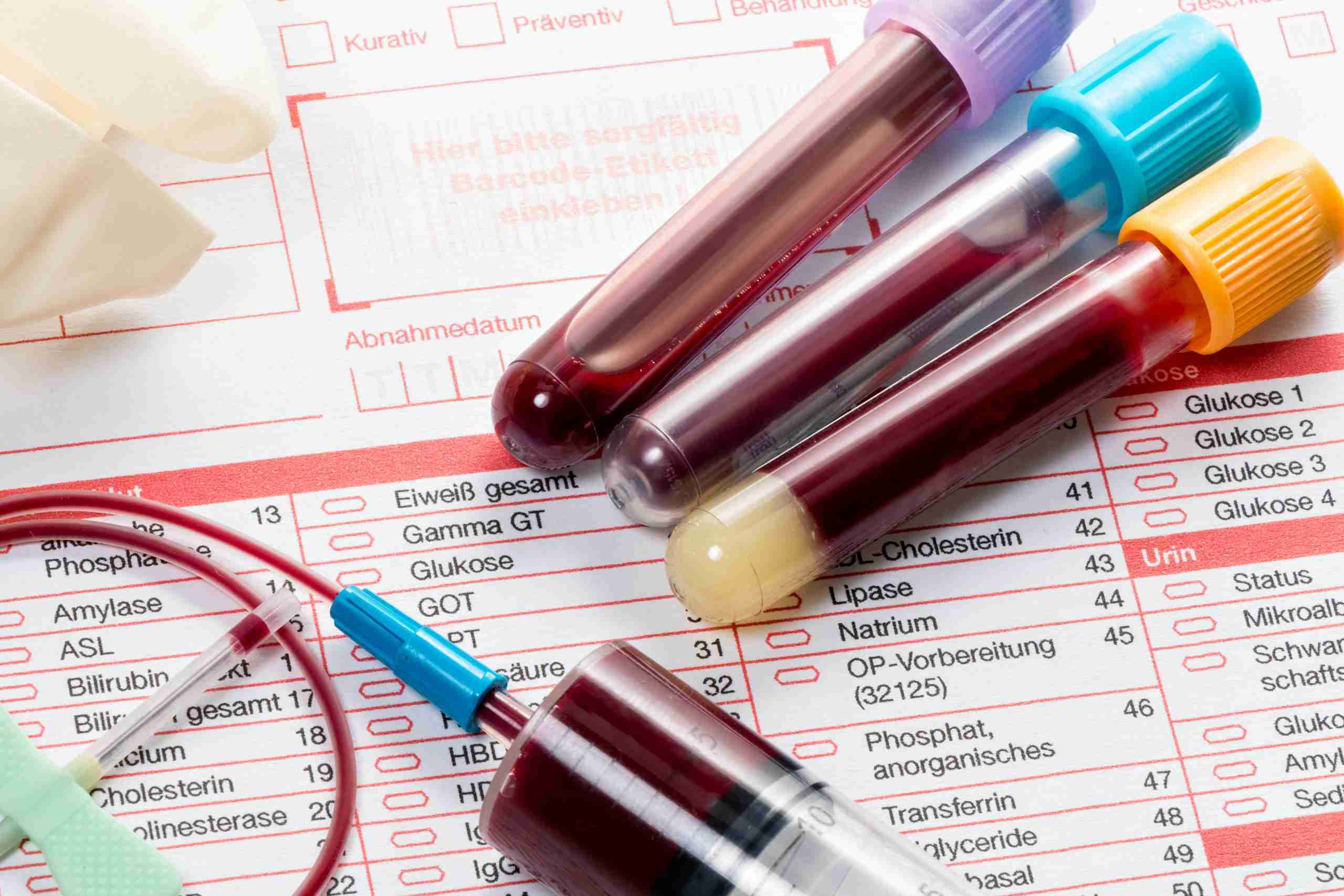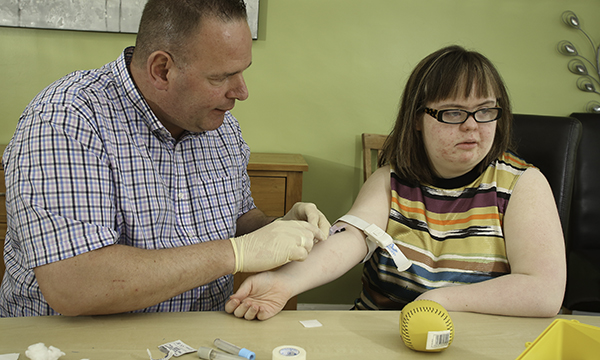
“A blood test is a lab analysis of things that may be found in your blood. You may have blood tests to keep track of how well you are managing a condition, such as diabetes or high cholesterol. You may also have them for routine checkups or when you are ill.
Blood tests are very common. They are ordered by healthcare providers to:
- Find out how well organs, such as your kidneys, liver, heart, or thyroid are working
- Help diagnose diseases, such as cancer, diabetes, heart disease, and HIV/AIDS
- Find out if your medicine is working to make you better
- Diagnose bleeding or clotting disorders
- Find out if your immune system is having problems fighting infections
- Diagnose anemia, such as iron-deficiency anemia, pernicious anemia, aplastic anemia, or hemolytic anemia
- Find variations in hemoglobin, such as hemoglobin S, C, or E, which are common in people of African, Mediterranean, or Southeast Asian background
- Monitor chronic health conditions and diseases
- Find health problems in their early stages.” [1]

General Guidelines for Blood Test Frequency
” While individual needs vary, there are some general guidelines on how often you should get blood work done:
- Annual Check-Up: Most adults should have a routine blood test during their annual check-up. This can include tests for cholesterol levels, blood sugar, and other primary health indicators.
- Every 3-5 Years: If you are in good health and have no ongoing medical conditions, a more comprehensive blood panel might only be necessary every 3-5 years.
- Twice a Year: Getting blood work done twice a year is often recommended for those managing chronic conditions or taking medications requiring monitoring.
- More Frequently: If you are experiencing symptoms that could indicate a health issue, such as unexplained weight loss, fatigue, or persistent pain, your doctor may suggest more frequent blood tests.” [2]
Working with Patients with IDD
“IDD may affect an individual’s ability to communicate effectively, report medical conditions, self-regulate behaviors, and interact with others to get needs met. Simplifying language and using visual supports can improve communication between you and your patient with IDD.
All IDD people can benefit from an organized approach to routine clinic procedures. Patient flow, planning, and team communication can affect the experience that patients with IDD have in medical settings.” [3]

Accessibility and Convenience in Blood Testing
“In today’s world, accessibility to health services is crucial, and this includes blood testing. The landscape of how we conduct these tests has expanded significantly, offering several methods tailored to individual needs and preferences. One traditional route involves visiting a local laboratory. This ‘blood testing lab near me’ approach provides a personal touch where trained professionals can assist with blood draws, answer questions, and provide quick turnarounds in results. Many labs now also offer flexible hours and online result portals, which offer additional convenience to those with busy schedules or mobility challenges.
For those seeking even more convenience, at-home ‘blood testing kit’ options have emerged as a valuable resource. These kits can be ordered online and delivered right to your door, allowing you to perform necessary tests from the comfort of your home. This is especially beneficial for those with limited mobility or who may feel anxious about visiting medical facilities. After collecting the sample, you can send it back to a laboratory in pre-paid packaging, and results are often made available over secure online platforms. Through advancements in technology, these kits are designed to be user-friendly and provide clear, easy-to-understand results. More importantly, these innovations ensure that individuals and caregivers have the tools to monitor health regularly, empowering you to make informed health decisions. As technology continues to evolve, so do the methods and accuracy of blood testing, making it not only easier to access but also simpler to interpret over time.” [4]

Preparation
“People struggle with the new and unfamiliar.
Familiarizing a person with what is going to happen can help to reduce anxiety and prepare them for a blood test. The amount of preparation needed will be different from person to person; sometimes there is a fine line between preparing a person to allay their worries and unintentionally creating anxiety because the forthcoming procedure is being blown out of proportion.
There are tools that people have found useful in helping someone to prepare for a blood test; these include social stories, easy read information, photo books or films. Others may have their fears allayed by a trip to the doctor or hospital prior to a blood test.
Some hospitals have uploaded films to YouTube explaining what happens during a blood test. “[5]

Blood tests play an important part in assessing, monitoring and treating the health of people. Therefore, it is important to find a way to make the procedure possible, even for people who are needle phobic and/or have disability
Resources
[1] https://www.hopkinsmedicine.org/health/treatment-tests-and-therapies/blood-tes
[2] https://lagunabeachuc.com/how-often-should-you-get-blood-work-done
[3] https://vkc.vumc.org/assets/files/resources/needlestick-toolkit-providers.pdf
[4] https://treasurecoastdiagnosticlab.com/articles/why-is-blood-testing-important-for-overall-health
[5] https://www.downs-syndrome.org.uk/wp-content/uploads/2023/09/07.2020-Having-a-blood-test.pdf [6] https://www.gov.uk/government/publications/blood-tests-and-people-with-learning-disabilities/blood-tests-for-people-with-learning-disabilities-making-reasonable-adjustments-guidance
